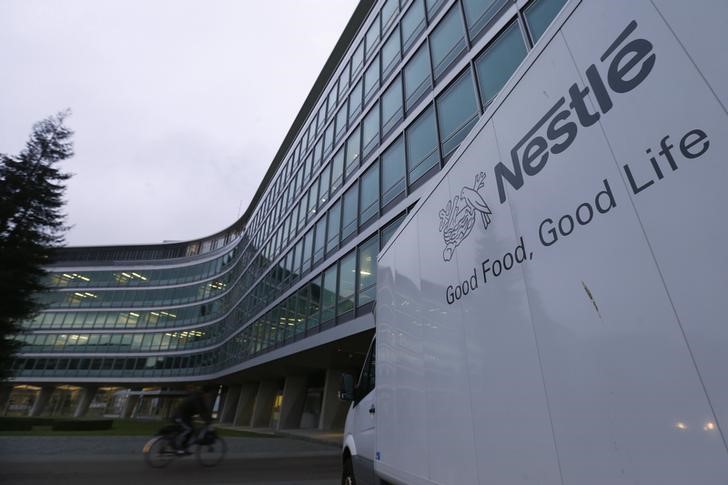By Geoffrey Smith
Investing.com -- Swiss consumer giant Nestle (SIX:NESN) provided further evidence on Wednesday of one of the less-talked about trends of the pandemic: the rising importance of pets in a world of more isolated humans.
Sales of pet foods, notably its Purina brand, rose 11% in the third quarter, helping the company post its fastest quarterly sales rise in a decade and allowing it to raise its outlook for the year.
Overall, organic sales are now set to grow 3% this year, after a 4.9% increase in the third quarter. Nestle also expects underlying margins to improve.
The stunning growth of pet foods, already a well-established and mature business, is widely seen as reflecting an increased desire to treat or spoil one’s closest companions at a time when visiting family and friends has become more difficult. Think about all the people you have heard complaining they haven’t seen their parents and/or children in months and that makes plenty of sense.
(It may make less sense to those who would cheerfully starve a yowling annoyance that is a constant allergy risk and distraction from work, but the author supposes himself to be in a minority here.)
In another entirely understandable development, Nestle’s health science arm also grew organic sales at over 10% year-on-year in the quarter. “Demand for vitamins, minerals and supplements that support health and the immune system remained high,” it noted.
That statement requires little explanation but does raise questions as to whether such momentum can be sustained in the new year if, as seems likely, the pandemic recedes as vaccines become available to the general public.
Such risks are, for now, a minor concern. Arguably of more concern is the stock’s failure to build on the summer recovery. It fell 0.3% on Wednesday in response to the news to its lowest level since July. It’s now on course for a third straight weekly loss after failing to breach resistance around the 110 franc level on three occasions. The momentum behind chief executive Marc Schneider’s drive to squeeze more value out of its stable of global brands appears to be stalling. At 23 times trailing earnings, it's no longer cheap, even though its 2.5% dividend yield seems attractive on a risk-adjusted basis.
Part of the trouble with Nestle is that, like its big rival Unilever (NYSE:UL), developments have been extremely lumpy since the pandemic erupted. Steep gains in one division have been offset by losses in others, especially in sales tied to public venues such as cafes and movie theaters.
But the bigger problem for Nestle shareholders is arguably a broader one. The stock performs best, in a relative sense, as a defensive play. The stock still outperformed the broader market on a day when concerns about the Covid-19 virus again dominated. But with a new U.S. administration seemingly inbound, hell-bent on massive reflation, and with similar moves afoot in the euro zone, the temptation to rotate out of Nestle and into other consumer-focused stocks that offer more value will surely grow.
